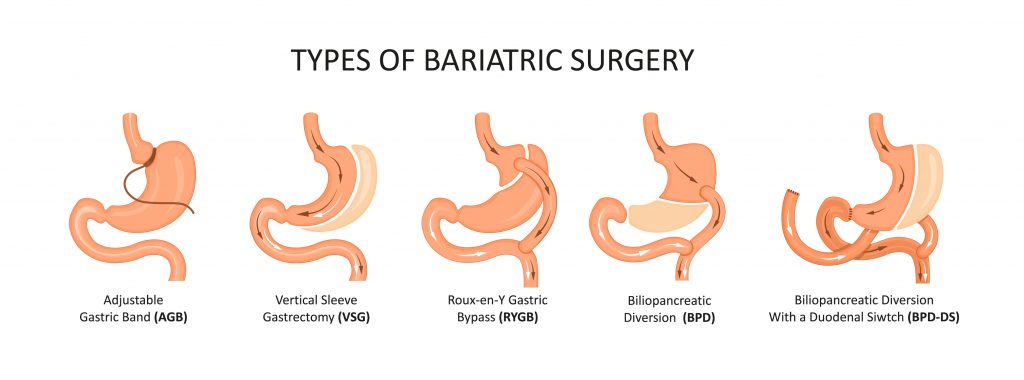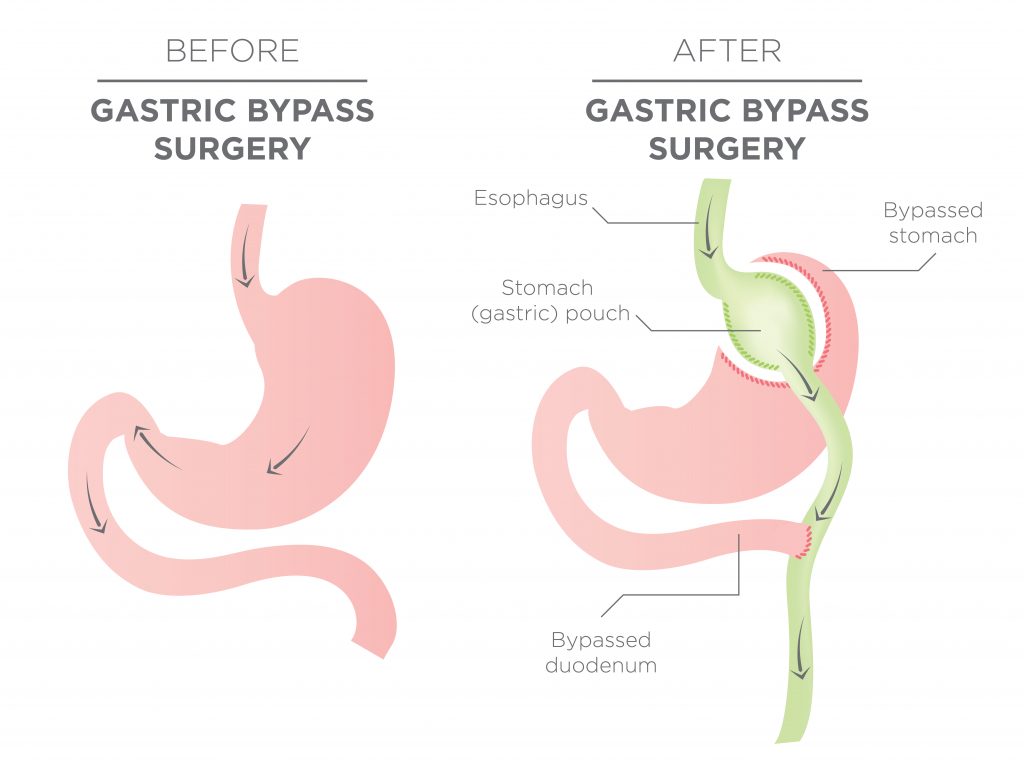
Health 101: Understanding Bariatric Surgery

As obesity rates are skyrocketing along with the demand for instant results, people are turning to bariatric surgery to deal with obesity. Bariatric surgery is presently safer and highly effective as compared to the earlier versions. However, it is reserved only for the severely obese people. Despite being helpful, bariatric surgery has its complications. Moreover, permanent weight loss is not guaranteed. However, an increasing number of doctors are recommending bariatric surgery for patients who are severely obese and those that find no other solution.

Motortion Films/Shutterstock
The United States has been dealing with an epidemic of obesity, which is affecting 55% of the adults. Four million U.S. Citizens are reputed to be severely obese. Also, 80% of the women of childbearing age suffer from this problem. Among the women who are opting for bariatric surgery, the average age is in the late 30s having a weight of a massive 300 pounds. Estimates show that the number of bariatric surgeries is likely to reach about 40,000 because the number has doubled over the last five years. The popularity of bariatric surgery has increased despite the $25,000 price tag. This is because insurance companies are willing to cover the cost of the procedure.
[su_quote class=”cust-pagination”]“According to the surgeon general, obesity today is officially an epidemic; it is arguably the most pressing public health problem we face, costing the health care system an estimated $90 billion a year.” — Michael Pollan [/su_quote]
How Bariatric Surgery Works

logika600/Shutterstock
When a patient opts for bariatric surgery, the surgeon closes the stomach off and just leaves a small pouch which is about the size of a thumb for the food. It results in the patient’s feeling full after just having a few calories of food.
However, the most common procedure that is used is the gastric bypass surgery. Here, the surgeons do not just shrink the stomach but also reroute the small intestine to curtail the digestive process. This decreases the number of calories absorbed.

bearsky23/Shutterstock
The Side Effects of Bariatric Surgery
Bariatric surgery is a major procedure, and complications can arise for some reasons. About 1% of the patients who undergo bariatric surgery are exposed to the risks of fatalities. Nearly 20% of the patients may require additional surgery to deal with complications such as abdominal hernias. Also, 30% of the patients develop nutritional deficiencies due to the shortened digestive tract. This could lead to problems such as anemia and osteoporosis.
People who undergo bariatric surgery must also adopt lifestyle changes. They must be extremely attentive to their diets because the new stomach will require several tiny meals that are nutrient-rich. They must also take vitamin and mineral supplements. Having too much food could overload the sensitive pouch, resulting in dumping. Dumping is the term which is used to provide a description of the sweats, nausea, and chills that result from overloading the pouch and an overflow into the small intestines. Therefore, patients who have undergone the procedure should be adequately prepared to take proper care of their diets.
[su_quote class=”cust-pagination”]“More die in the United States of too much food than of too little” —John Kenneth Galbraith [/su_quote]

NinaMalyna/Shutterstock
The Results Of Bariatric Surgery
Bariatric surgery has proven to be a success where are the methods have failed. The loss of weight begins immediately after the procedure and only tapers off after 18 to 24 months. The average loss of weight among patients is in the region of 50 to 75% of the excess weight. Most importantly, the patient manages to keep the weight off. The results provided by bariatric surgery are yet to be matched by any drug or diet plan presently in use. For instance, the failure rates of dieting are approaching 100%. Therefore, experts now believing that nonsurgical methods do not work for the severely obese. The fact that insurance companies are willing to cover the costs should make it easier for those who may be severely obese to undergo bariatric surgery.
More in Health & Well-being
-
`
Where to Vacation in December for a Memorable Holiday?
As December rolls in, travelers are faced with a myriad of choices for a perfect holiday escape. If you’re wondering where...
September 4, 2024 -
`
What Is a Personal Mantra and Tips to Develop Yours in Minutes
Are you feeling stuck or overwhelmed? It’s easy to lose focus when life gets challenging. But what if a simple phrase...
August 30, 2024 -
`
How to Control Anger – Practical Tips and Techniques
Anger is a complex emotion that everyone experiences from time to time. It can arise from a variety of triggers and,...
August 23, 2024 -
`
How to Tell if a Bipolar Man Loves You – Key Signs and Indicators
Relationships, especially those involving someone with bipolar disorder, can be challenging but rewarding. The highs and lows characteristic of bipolar...
August 15, 2024 -
`
How to Prepare for All You Can Eat Sushi Buffets – Tips & Tricks
Are you ready to enjoy a sushi buffet and make the most out of your dining experience? If you’re a sushi...
August 9, 2024 -
`
How Does the Brain Play Into Mindset? The Power of the Mindset
How does the brain play into mindset? Within the brain lies the foundation of our mindset, shaping our perceptions and guiding...
August 3, 2024 -
`
How Often Should You Meditate to Achieve Your Goals
How often should you meditate to achieve its benefits? This question is often asked by those looking to incorporate this practice...
July 25, 2024 -
`
How to Be a Better Wife? 10 Essential Tips
Marriage is a beautiful journey, a tapestry woven with moments of joy, tenderness, and perhaps even a few snags along the...
July 19, 2024 -
`
The Best Quotes About Shadow Self You Need to Read
The journey of self-discovery is incomplete without acknowledging the parts of ourselves that lurk in the dark—the shadow self. “Owning Your...
July 12, 2024















You must be logged in to post a comment Login